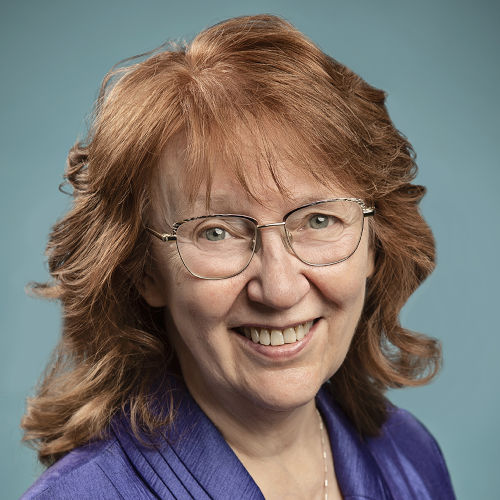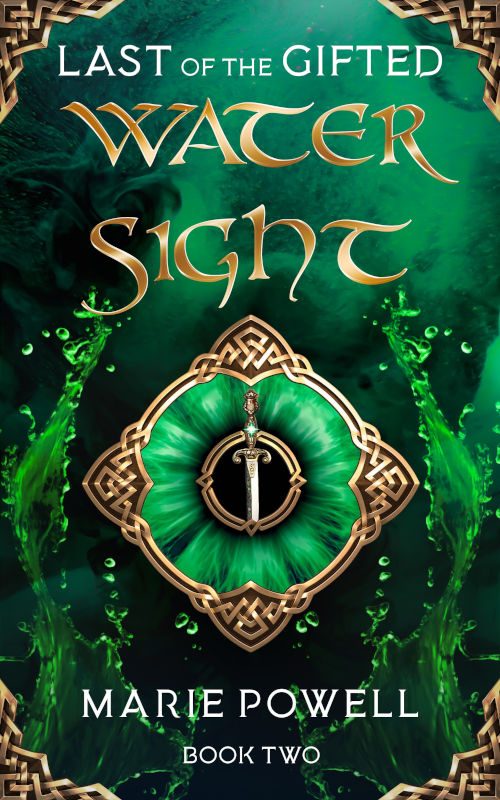How a trip to Wales inspired a medieval fantasy series

History came alive for this author as she explored the ruins of a thirteenth-century castle in Wales—an experience that inspired an award-winning medieval fantasy series.
by Marie Powell
Signs in Welsh first (with English in the fine print), baffling traffic circles, cars shaving by each other between the rock cliffs and the steep drop down the mountain on the other side. Not to mention driving on the wrong side of the car, on the wrong side of the road. Everything seemed to be moving too fast, especially the time running out on our first family trip “overseas.”
Those were my first impressions of my grandfather’s country. I wasn’t doing research to write a novel, that first time. As a journalist, I had a few contracts to write travel articles and a vague sense of freelancing more once we got home again to Canada.
In Welsh, hireath translates to homesickness, but it’s more than that: it’s a longing for a land that never was.
I might have been looking for a way to break a strange family curse. In a little more than a year, I was turning fifty years old. And in my family, at least in those days, we spoke of the fifth decade in hushed whispers. My eldest brother died when he was months past the age of fifty, my grandfather at fifty-two. My father lived longer, but death hit him hard at fifty-six, beginning with a seizure at work. He had been a tennis champion and was still fit and agile, so it stretched out for a full year, grinding him down, robbing him of the ability to read and then speak and then control his own movements. Cancer, of course: a malignant brain tumor.
 And I was more than a little obsessed with the grandparents I had never known, that I had never asked enough questions about, when there was still someone alive to ask. But as I explored the Welsh mountains that first time, my family history merged with some deeper thing. Something the Welsh call hireath. It’s translated as homesickness, but it’s more than that: it’s a longing for a land that never was. I’ve been back to Wales since that trip, and I will go again, and it will always be the same.
And I was more than a little obsessed with the grandparents I had never known, that I had never asked enough questions about, when there was still someone alive to ask. But as I explored the Welsh mountains that first time, my family history merged with some deeper thing. Something the Welsh call hireath. It’s translated as homesickness, but it’s more than that: it’s a longing for a land that never was. I’ve been back to Wales since that trip, and I will go again, and it will always be the same.
You see, Wales is the myth that haunts my blood.
***
Novelists don’t need to do their research in person. We have thick history books and magazine articles full of juicy details. Whole library archives are online now. The wide world of the internet can take us anywhere we want to go, through satellite images and real-time photos and social media friendships. Videos and images are so useful, and the Covid pandemic has caused an upsurge of podcasts and webinars that can inform and inspire. And there’s the journalist’s major research tool, the interview, which can be done over the phone or on Zoom. Scholars and experts are often willing, or even happy, to share their knowledge.
I didn’t know, as we explored stone castles so old you could feel the stories dripping from them, that a story could haunt a person even before it’s told.
As an author, I use and advocate using all of these methods, and more besides. And I can’t stress enough how important it is to do that work, to get the sensory and emotional details to tell a really good story.
For historical novelists, especially those of us who write about times that stretch back eight hundred or more years in the past, visiting a country as it is today is not really all that useful. Landscapes shift, rivers overflow and alter course, and people change as their culture and beliefs bear the impact of trade and survival in our ever-shrinking world.
Languages change too, gaining new terms and concepts over the centuries. But I have read that when the Welsh officially regained their right to use their language again, sometime in the 1990s, it was being spoken almost exactly as it had been spoken when it was outlawed in 1282. It had been kept alive in the mountains, in secret, by people like my grandfather, who billed himself as a Welsh-first speaker in the 1916 Canadian census.
I knew that stories hide in the nuances of language and culture. I didn’t know, as we explored stone castles so old you could feel the stories dripping from them, that a story could haunt a person even before it’s told.
***
People often ask me what inspired my series, Last of the Gifted. It’s a medieval fantasy set in 1282–1283 Wales, telling the tale of two siblings who pledge their magical abilities to protect their people, with help from the last true Prince of Wales, after his murder.
I suppose the inspiration was a lot of little things, really, but it all came to a head as I walked the ruins of Dolwyddelan Castle on that first trip to Wales.
Way, way up at the top of a set of crumbling stone stairs, there was a door. So we climbed the stairs and opened it.
By then we had seen several imposing castles: Conwy, Caernarvon, Beaumaris. And I’d discovered these are really huge English castles built by Edward I (a.k.a. Longshanks) to subjugate the Welsh. We took guided tours and bought souvenirs in the castle shops. But we had booked a cottage for the week at a working sheep farm near the village of Dolwyddelan, so it seemed natural to visit that one, too.
We drove into the deserted parking lot. There was no gate, no ticket salesperson, no little shop selling souvenirs, no tour guides, and really, no people around. Just signs with pictures that showed people falling off rocks: enter at your own risk. But it was a sunny afternoon in mid-May, and we felt the peaceful isolation of the greening countryside. We climbed by a little pond with its own trickling waterfall, and passed the scattered rocks as we made our way up the hill to the imposing stone tower at the top.
And then we stood, staring at the tower. Way, way up at the top of a set of crumbling stone stairs, there was a door. So we climbed the stairs and opened it. Inside, it was a cozy little castle, really, compared to the big English ones. You could see the hearth where people might warm themselves and the area behind it where you might cook a meal. Someone had gone to the trouble of posting placards all around the interior, showing the history of the real Welsh princes and the castle. Kind of a self-guided tour, not just of the castle but of Welsh history.
We went up on the wall walk and looked out over this beautiful hillside, and I could suddenly imagine it filled with about three thousand hostile enemy soldiers. I started wondering what it would have been like to live there in that final year of Welsh independence and afterwards, to have everything taken from you: your language, your culture, your laws. Everything but yourself, your wits, and your will to stay alive. My son, then eleven years old (which I later find out is “double sticks,” or the age of awakening in Welsh lore), pointed out the possibility of escape, of hope farther up the mountainside.
Perhaps something walked with us in the dappled shadows of Dolwyddelan, and it stayed with me as we drove back to the sheep farm, and afterwards when we flew back to Canada. Sometimes I think of it as a warrior spirit; sometimes a growing sense of courage. For our ancestors, surrendering to fear, to time, to the stone walls of the enemy, is worse than death.
And perhaps that’s why it was so important for me to be there in person. All I know is that if I hadn’t gone to Wales, I wouldn’t have had the idea that became my award-winning novel series, Last of the Gifted.
Marie Powell‘s adventures in castle-hopping across North Wales resulted in her award-winning medieval fantasy series, Last of the Gifted: Spirit Sight (Book One) and Water Sight (Book Two). Marie is the author of more than forty children’s books with such publishers as Scholastic Education Canada, Amicus, Crabtree, Lerner/Lightning Bolt and more. Her award-winning short stories and poetry appear in literary magazines and anthologies, and her thousands of nonfiction articles appear in print and online markets.
Connect with her on her website, Instagram, Facebook, and Twitter.
You can also connect with Marie on LinkTree, and be sure to check out her Last of the Gifted video series on YouTube.